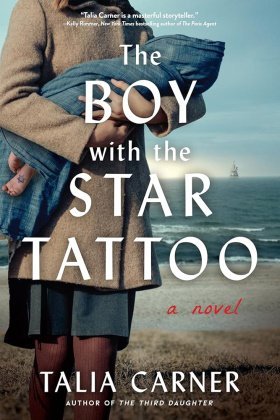This book would not have started had it not been for investigative journalist Meira Gaunt, who initiated a call to Hadar Kimche and turned my abstract idea into a doable writing project. And the novel could not have progressed without the support of my writing group, Two Bridges, administered by Walter Cummins.
But it was the patience of readers with red pens, each contributing significant observations and comments, that vaulted this complex novel to the finish line: Sue O’Neill, Lisa Bernard, Astrid Cook, Andrew Gross, Becky Stowe, Diane Goullard, Linda Davies, and, especially, Emily White, my adviser on each of my novels so far.
My agent Annelise Robey and her colleague Logan Harper from the Jane Rotrosen Agency have cheered me from the sidelines. My wonderful editor at HarperCollins, Tessa Woodward, along with her assistant, Madelyn Blaney, ably coordinated a fantastic team—from Lisa Glover, Tracy Roe, and Joe Jasko, who cleaned up my drafts, to Kerry Rubenstein, who designed the striking cover art, and followed by Amelia Wood and Tess Day in marketing and publicity. Their combined hard work shepherded the manuscript from the chip inside my computer into your hands, the reader. Thank you all! I can’t imagine a better dream team to birth my novel.
And, as always, there is Ron, who once again sacrificed our private time to allow me days, weeks, months, and years of writing
this story. Fascinated by the research that unfolded with a string of coincidences that opened new doors, he encouraged me
to pursue them and accompanied me on three of my five trips to France.
Glossary
caserne—(French) Military barrack.
cholent—(Yiddish) A savory slow-cooked stew for Shabbat with meat, barley, potatoes, and beans. It was developed over the centuries to conform to Jewish laws that prohibit cooking on the Sabbath.
chutzpah—(Yiddish, Hebrew) Daring; audacity with insolence. Having the “gall” or “nerve” to say or act on one’s self-confidence.
CMN—Constructions Mécaniques de Normandie, the shipyard founded and run by Félix Amiot in Normandy, France.
DP camp—Displaced-persons camp; these were established throughout Europe shortly after World War II to care for the millions of homeless, nation-less refugees.
Eretz Israel—Meaning “the Land of Israel”; it was the traditional Jewish name favored by the residents of the Jewish territory before the formal establishment of the State of Israel.
fedayeen—(Arabic) Arab guerrillas, especially those operating against Jews in Israel and Palestine; Islamic militants.
gonif—(Yiddish) A thief.
Holocaust—The genocide of European Jews during World War II. Between 1941 and 1945, Nazi Germany and its collaborators systematically murdered six million Jews across German-occupied Europe.
IDF—Israel Defense Forces; it combines all branches of the armed and information forces under one umbrella.
kishkes—(Yiddish) Guts.
kosher, kashrut—(Yiddish, Hebrew) The Jewish observance of strict dietary rules and religious practices of food preparation.
League of Nations—The precursor to the United Nations, established in 1919 by the Treaty of Versailles to promote international cooperation and peace.
Maquis—(French) Guerrilla bands of French Résistance fighters during the Nazi occupation of France in World War II; they operated out of forests.
mezuzah—(Yiddish, Hebrew) A case containing a parchment inscribed with religious texts and attached to the doorpost of a Jewish house as a sign of faith.
mitzvah—(Yiddish, Hebrew) A good deed; a meritorious or charitable act.
mohel—(Yiddish, Hebrew) A person who performs the Jewish rite of circumcision.
moshav—(Hebrew) An agricultural cooperative of independent farms. Unlike a kibbutz, where everything—from buying clothes to child-rearing practices—is decided and owned communally, in a moshav, residents own their own homes and farms and manage their core family lives and economics independently but share heavy agricultural machinery, purchase fertilizers in bulk, and market their produce together.
OSE—Œuvre de secours aux enfants, a Jewish charity in France that rescued children and ran orphanages.
punchke—(Yiddish) A Hanukkah delicacy of fist-size fried balls of dough stuffed with jam and sprinkled with confectioners’ sugar.
savta—(Hebrew) Grandmother.
shmi—(Hebrew) “My name.”
tsuris—(Yiddish) Troubles, hardships.
Yad Vashem—(Hebrew) Central Holocaust memorial located in Jerusalem.
yenta—(Yiddish) An old busybody, someone who gossips or meddles in other people’s affairs.
yishuv—(Hebrew) The autonomous body of Jewish residents in Mandatory Palestine prior to the establishment of the State of Israel. It was run by the de facto government of the Jewish agency.
Youth Aliyah—A Jewish organization that rescued thousands of Jewish children from the Nazis during the Third Reich and arranged for their
resettlement in Palestine in kibbutzim and youth villages that became both homes and schools.
About the Author
TAILIA CARNER is the former publisher of Savvy Woman magazine and a lecturer at international women’s economic forums. This is her sixth novel.
Discover great authors, exclusive offers, and more at hc.com.
Also by Talia Carner
Hotel Moscow
China Doll

























